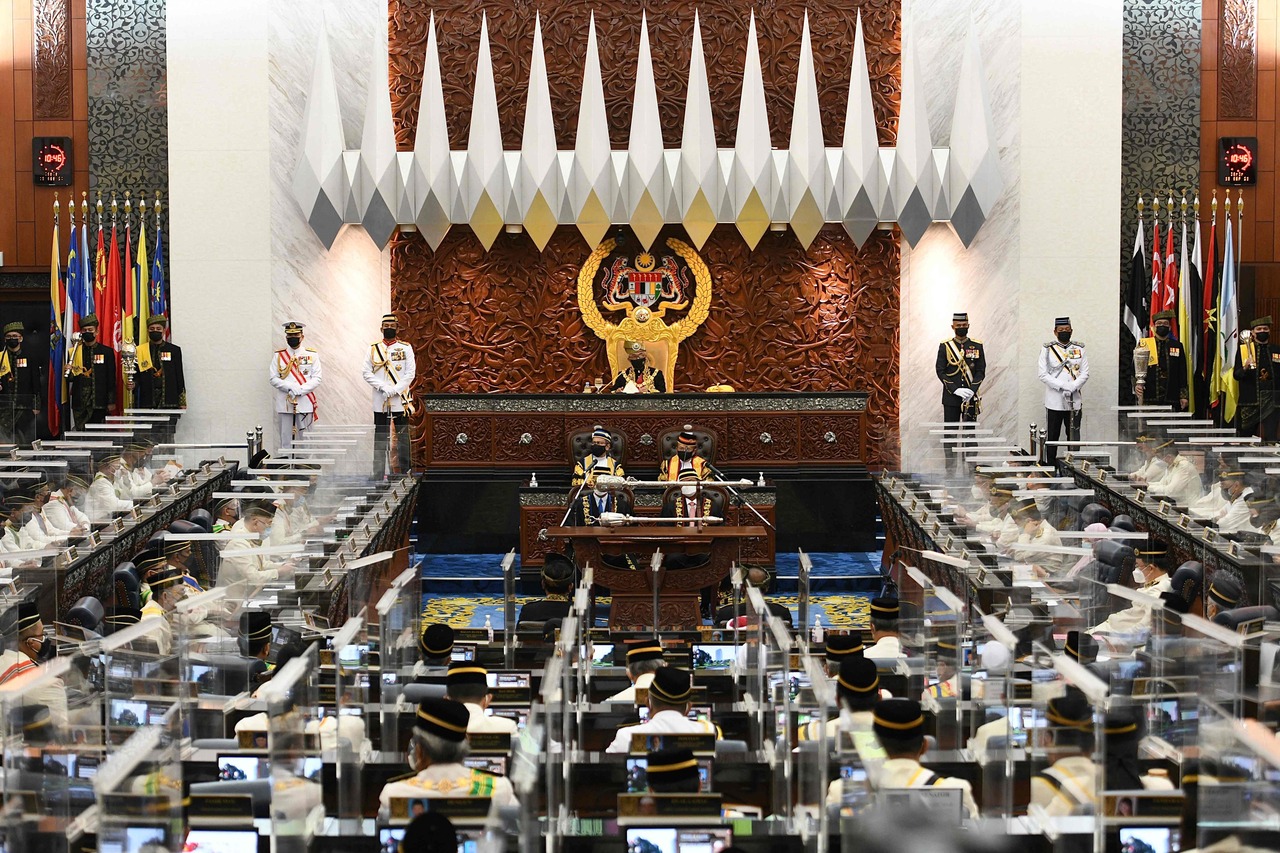PAS torn between supporting Umno or Bersatu in Malaysia's next election
Sign up now: Get insights on the biggest stories in Malaysia

While the official stance of PAS is to cooperate with both parties, its leadership is split between those supporting PN and those supporting BN.
PHOTO: AFP
KUALA LUMPUR - Parti Islam SeMalaysia (PAS), which has played a key role in propping up the federal government in Parliament since March last year, will have to decide soon on its stance for the next general election.
The Islamist party will have to decide if it will remain with former premier Muhyiddin Yassin's Perikatan Nasional (PN) alliance or join the Barisan Nasional (BN) led by Umno.
Both groups are keen for PAS to be on their side.
The stakes are thus high for PAS, which has come a long way from its rural roots and is now in the seat of power. It is due to stage a two-day annual congress and biennial party polls from Nov 6, during which internal tensions over the issue of supporting PN or Umno could be apparent.
The legislative election in the state of Melaka on Nov 20 could be another pointer on which way the fundamentalist party is leaning.
In September 2019, Umno and PAS entered into a political pact called Muafakat Nasional (MN), which saw both cooperating in several by-elections.
Six months after the pact was signed, though, MN became less significant following the political crisis which led to the collapse of the Pakatan Harapan (PH) government.
The crisis led to Tan Sri Muhyiddin, the leader of Parti Pribumi Bersatu Malaysia (Bersatu), assuming office on the strength of the PN alliance, which included PAS, and support from Umno. In August, Mr Muhyiddin lost his razor-thin majority in Parliament and was forced to resign after several Umno lawmakers stopped supporting him.
Datuk Seri Ismail Sabri Yaakob, an Umno vice-president who served as deputy to Mr Muhyiddin, became the new prime minister with support from the same parties that backed his predecessor.
PAS research head Zuhdi Marzuki said it would continue with efforts to unite the three largely Malay-based parties - PAS, Bersatu and Umno.
"Cooperation between the three parties is still possible. But if we cannot achieve this, we will try to make sure that Umno and PN will not contest the same seats," he told The Straits Times.
"The best is for Umno/BN and PN to cooperate. This will form a stable government after the general election, and a political crisis can be avoided," he added.
Think-tank Ilham Centre's head of research, Dr Yusri Ibrahim, said that while the official stance of PAS is to cooperate with both parties, its leadership is split between those supporting PN and those supporting BN.
"To win the majority of votes among the Malay-Muslim segment, PAS' best option is to go with Umno/BN," he told ST.
But one stumbling block will be the division of seats between Umno and PAS because both have contested for the same seats for decades. Umno and PAS were bitter foes before BN lost the 2018 general election and lost power for the first time since independence.
Bersatu, which is at the core of PN, has no grassroots support, and the division of seats would be easier between it and PAS, added Dr Yusri.
Observers say that the PAS poll in November will indicate which direction the party will go.
PAS secretary-general Takiyuddin Hassan, who is Energy and Natural Resources Minister, as well as vice-president Ahmad Samsuri, who is Terengganu chief minister, are said to be pro-PN, while Datuk Khairuddin Aman Razali, a member of the PAS religious scholars' or Syura council who was dropped from the cabinet after Mr Muhyiddin resigned, is regarded as pro-Umno.
Separately, the distribution of seats for the Nov 20 Melaka state election is expected to be known in a week, following discussions between the three parties.
"Our main mission is to have two-cornered fights for every seat so as to facilitate our path to face Pakatan Harapan," Melaka PAS commissioner Kamarudin Sidek was quoted as saying by the Bernama news agency on Oct 18. PH is the main opposition pact.
But if the discussions reached an impasse, he said PAS would not hesitate to field its candidates for seats contested by Umno and Bersatu.
Sociopolitical analyst Awang Azman Pawi of Universiti Malaya said PAS must make a "firm stand" over whether it wants to be with BN or PN.
"If PAS dithers, it may be criticised by their grassroots as well as Umno, and its (opposition) rivals such as Amanah and Parti Keadilan Rakyat will use this issue to attack the party," he told ST.


